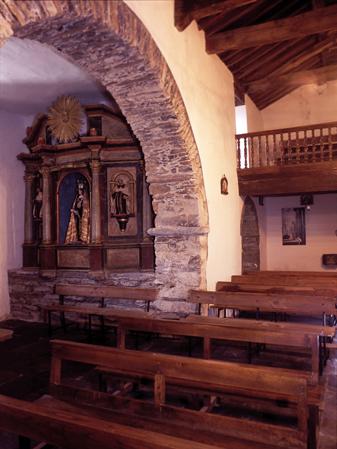
Church of Santiago (Pesoz)
- Title Pesoz Western Asturias
- Address Address: Bo. Pesoz, 46 ■ 33735 - Pesoz
- Period Period: Romanesque
- Management Management: Ecclesiastical
The church is one of the most emblematic elements of Pesoz.
Info
The temple has its origins in the Romanesque period, probably in the 13th century, although it was successively rebuilt and enlarged: the entrance doorway in the 15th century, a side chapel in the 17th century, and the one on the opposite side in the 19th century.
The church has a single nave with side chapels. On the outside, it has a square floor plan, from which the apse protrudes.
The walls are made of rendered slate masonry, with ashlars in corners and openings. The roof is made of slate with a belfry with two openings.
The temple conserves several Baroque works from the 18th century: a very popular carved Crucifix, three altarpieces and several images.
Map
Church of Santiago (Pesoz)
GPS: 43.257690,-6.876326

